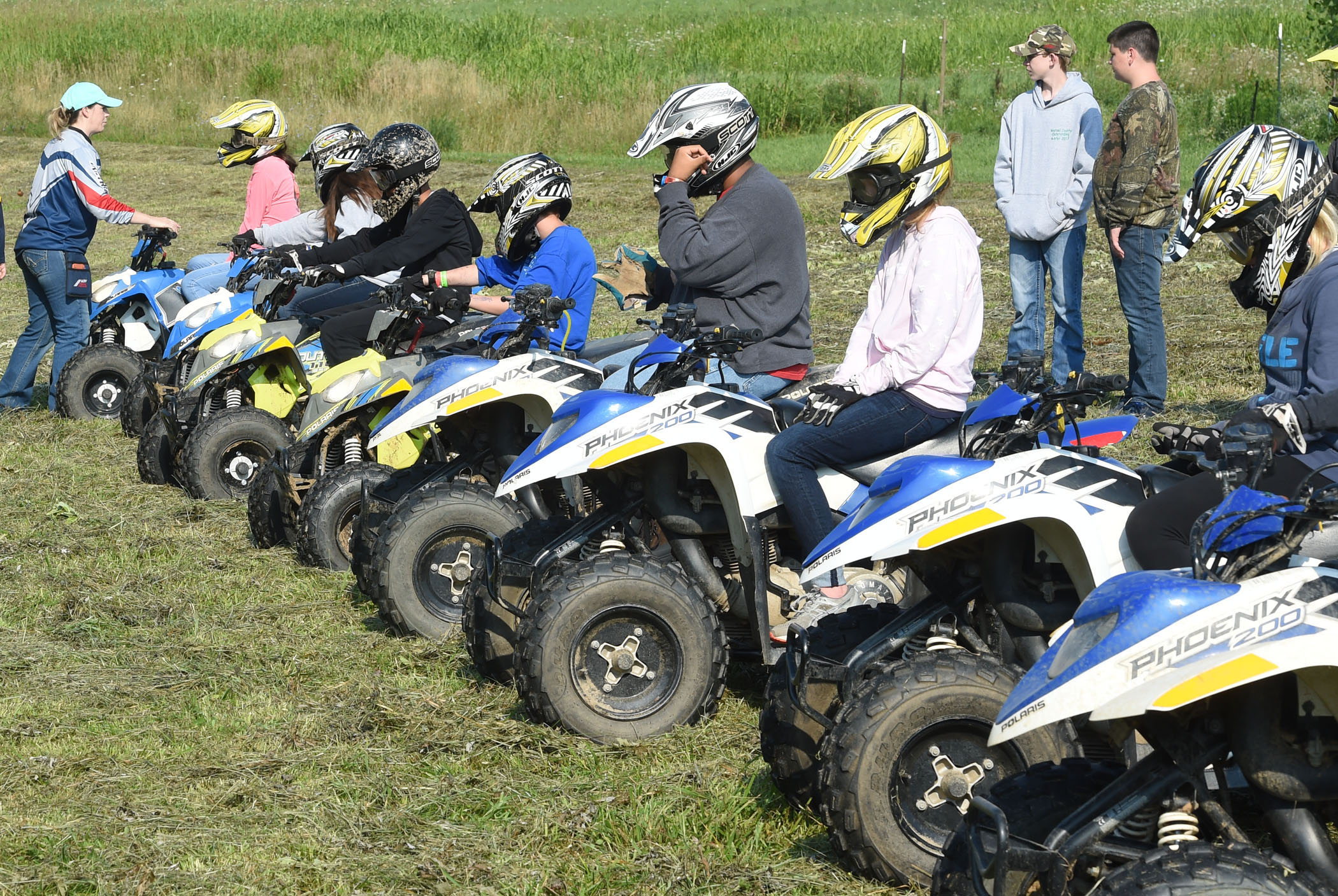MORGANTOWN –West Virginia is ranked third in the nation for ATV related fatalities.
That’s according to Haley Rosson, WVU assistant professor of agriculture and Extension education, who got her information from the U.S. Consumer Product Safety Commission.
That’s why at Tuesday’s AgriSTEM camp at the West Virginia University Agronomy Farm she was teaching the proper safety on the vehicles.
“The biggest thing we see is that they’re not wearing helmets, and if there’s any one thing I could do for the kids, is make sure that the kids are wearing helmets when they’re going out,” she said.
She said starting the kids off on the right foot and teaching them the proper safe riding practices is important so they can remember when they go home and share the information with family and friends.
Rosson grew up riding ATVs in New Mexico. She said she was always the one who didn’t ride safely — not wearing a helmet and on an adult-sized ATV. While working in Oklahoma, she took a rider course similar to what the kids were learning Tuesday.
“It was such an eye opening experience for me. I hadn’t been following these safe practices as a kid. I was really lucky that I didn’t get hurt,” she said.
She said she became passionate about teaching youth and adults ATV safety and making sure they’re following safe riding practices.
This is her first year teaching at WVU.
She said with the ATV safety course, the students learn about basic mechanics, the machines and how to safely operate them.
“We talk about hopefully not tipping over an ATV and kind of understanding your capabilities as far as operating the machine. Definitely being aware of the environment and being a good steward of the environment that they’re riding in,” she said.
STEM camp and AgriSTEM camp are weeklong endeavors filled with science-based activities. Students from all over West Virginia and Maryland participate in numerous learning experiences.
Jessica Blythe, assistant professor of agriculture and Extension education said campers completed a two-hour online course Monday before they got their engines running on their ATVs.
Aside from the Tuesday morning ride, Blythe said participants were involved in everything from food science and animal science to fashion design.
“We’ll go out and do the Adventure WVU zipline, doing some DNA testing, some blood and antibodies testing, milk quality testing,” she said.
STEM camp has been going on for six years. AgriSTEM is fairly new, going into its second year. During the day, the groups are separated, but stay together in a WVU residence hall.
“STEM camp always fills up. It’s very popular,” she said.
Blythe said getting professionals to go into STEM fields — science, technology, engineering and math — is sometimes difficult. She said it’s seen as something that is unattainable. She said students don’t understand how much STEM they do in their everyday lives.
“Sometimes STEM is just the critical thinking and problem-solving that you use every day. Building those skills whether they end up in a STEM industry or not is really sort of essential into allowing student growth to happen,” she said.




